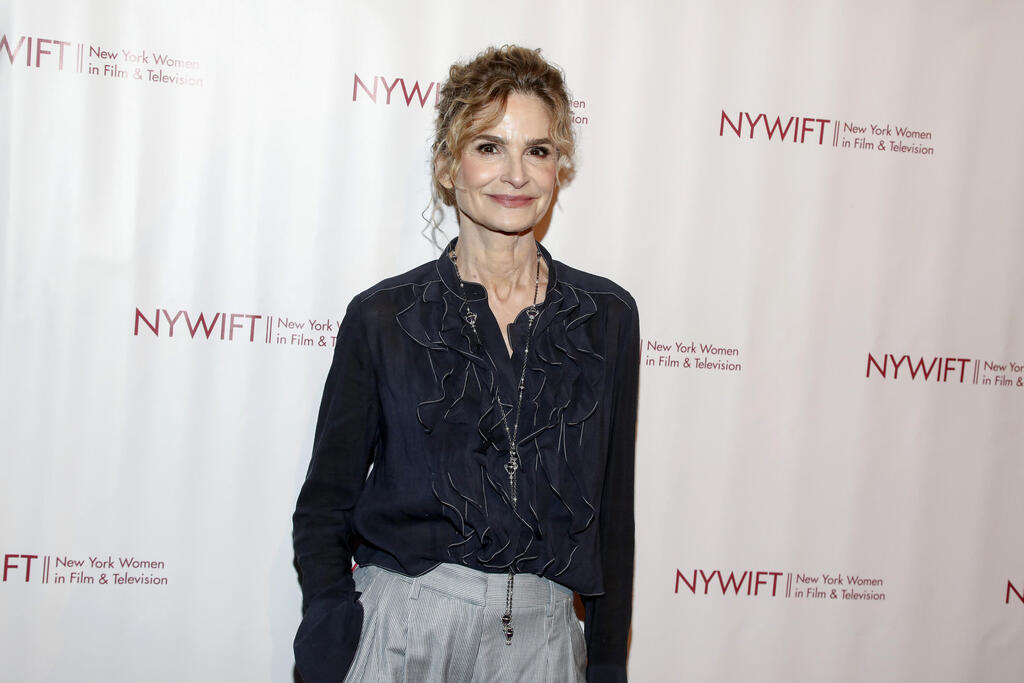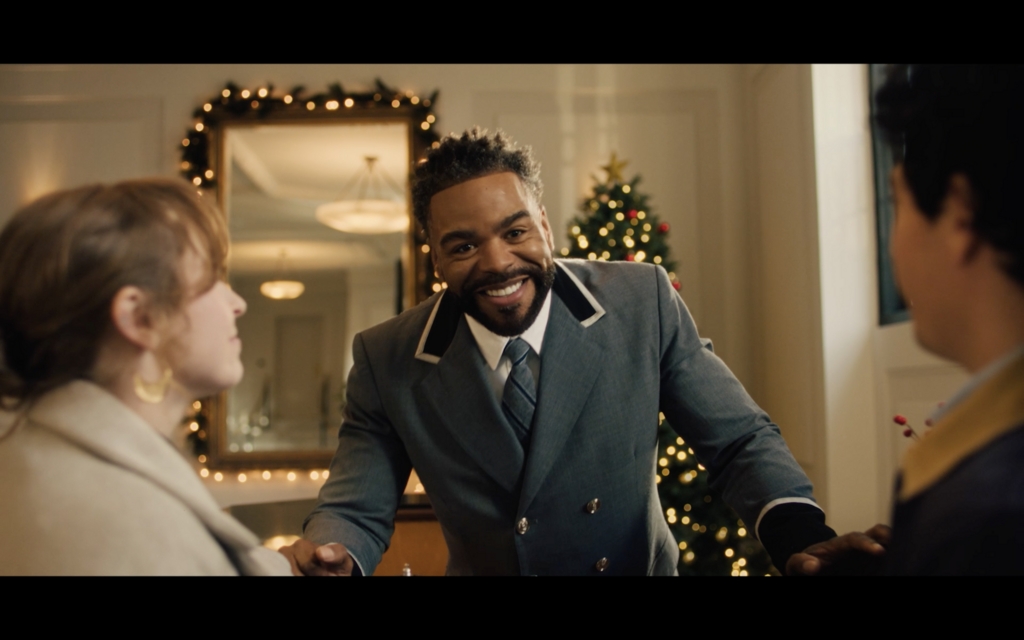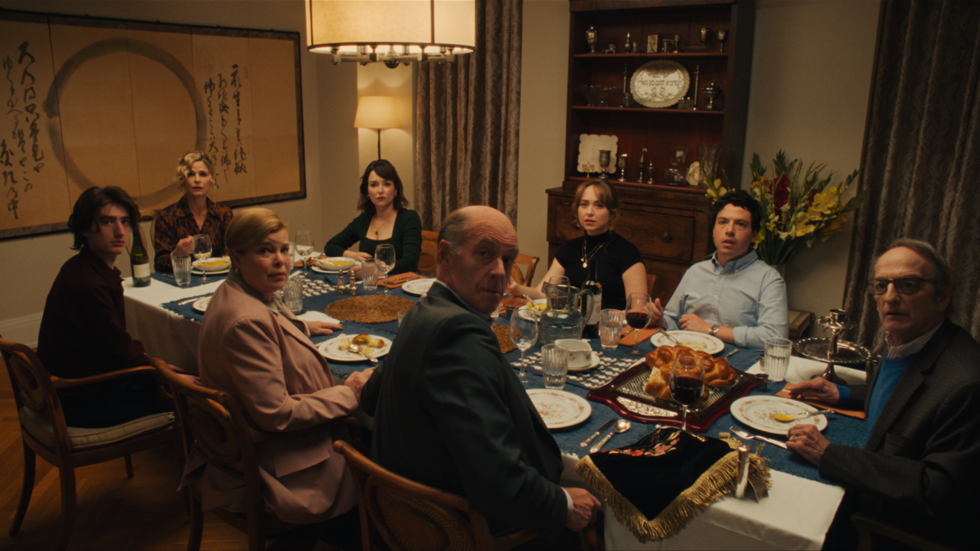Who among us isn't familiar with this scene from Shabbat or holiday meals, the pre-fast meal or the Seder night? The entire family gathers to eat and share experiences, but between the hummus, gefilte fish and the glass of kosher wine for Kiddush, tensions often spill over. Instead of plates and silverware, secrets, lies and conflicts are laid out on the table. This is how it is for us Jews—festive events often end in drama, sometimes even in arguments.
And so it is on screen as well. Many films identified as Jewish—a genre in its own right in the United States—explore these tensions between the father, the grandmother, the aunt visiting from afar, the mischievous grandchild and his non-Jewish girlfriend. And that's even before mentioning the mother, who no matter who her son brings home, will never consider her good enough.
These characteristics, almost as if scripted in the Talmud, often find their way into stories about Jewish families, as is the case with the film Bad Shabbos. However, in this American comedy, which won the Audience Award at the Tribeca Film Festival in New York, there are additional unexpected elements, including a corpse, Christian guests from the Midwest and even a black man who saves the day.
The plot of Bad Shabbos, co-written by director Daniel Robbins and his writing partner Zach Weiner, unfolds over the course of a few hours during a Shabbat meal, with its surprising twists sharply contrasting the saying, "He who prepares on Friday will eat on Shabbat."
The story begins with preparations for a family dinner ahead of the wedding of young Jewish David (John Bass) and his non-Jewish fiancée Meg (Megan Leathers). The groom’s mother (Kyra Sedgwick) is displeased with the interfaith relationship, but she and her husband (David Paymer) prepare to meet the bride's parents, who are visiting from distant Wisconsin (John Bedford Lloyd and Catherine Curtin).
Among the guests are their daughter Abby (Milana Vayntrub) and her boyfriend Benjamin (Ashley Zukerman), who, while being strictly observant, is also a mean-spirited and deceitful man. Their youngest son, Adam (Theo Taplitz), despises Benjamin so much that he hatches a malicious scheme, which spirals out of control and leads to Benjamin's unexpected death.
This unfortunate event sets off a chain of comedic situations as the family attempts to resolve the mess while adhering to Shabbat customs, with the help of the building’s security guard, Jordan (Clifford Smith)—a sort of “Shabbos goy” who comes to their aid.
"I like a few things [about Jewish customs]. The thing with the bread, right? Actually took some challah with me," admits Smith, known as the successful rapper Method Man from the Wu-Tang Clan, in an exclusive interview with Ynet.
"Not touching anything or doing anything outside of the home—basically, no electronics, no phone calls, nothing whatsoever. There were a lot of interesting things going on that I kind of looked at like, 'Wow, that's really being faithful, for real."
Smith shares that despite his prior experience with festive events like bar mitzvahs ("One thing I know about those is they do hire a lot of rappers"), during the filming he was exposed to the religious heritage through his character, Jordan, an African American who, in his efforts to help the family, pretends to be an Ethiopian Jew and participates in Shabbat customs—reciting blessings, singing songs, pouring the wine for Kiddush, tearing the challah and distributing it among those at the table.
It can be revealed that during the film, the hosts even invent some other customs that aren't found in Jewish law as they try to cover up incriminating evidence and obscure their tracks.
Unlike Smith, Kyra Sedgwick is a kosher Jew, but she also found herself amused by the Jewish customs and traditions depicted in the film. "I don't know if this is some kind of myth, but the moment he rips up the challah and starts throwing it around the table—that's fucking hilarious in any movie and every time I see it, I'm just like, what? What is that? I can't believe that that's actually part of the deal but it's pretty funny," she says, referencing other amusing traits often associated with Jews. "The stomach issues of many of us neurotic Jews is fun to play on and know that it's like lovingly making fun of itself in a way that I think is really great."
Sedgwick admits that in portraying Ellen, the family matriarch, she recognized traits that she personally relates to as a Yiddishe mama. "Family is critical for this mother which is something I can totally relate to," she says.
"Anything family feels really important in this family and having the traditions and having them adhered to is something that I can totally relate to and think is really fun. I also love that she is willing to make some shifts along the way. She's trying to get herself into 2023, and she's trying to learn that they will have different dynamics and want different things."
And, of course, there’s the guilt that comes with intergenerational relationships — a daily reality for every Jewish family, including the one in the film. "I can relate to that inherent feeling of you don't mean to make your kids feel guilty but you kind of tend to make them feel guilty because you have expectations and then maybe they don't live up to them or they didn't do the thing and they brought the wrong melon and I don't like the way you're cutting that and I don't mean to say that, but the truth is, I don't like that," she explains.
The matriarch's greatest disappointment stems from the fact that her future daughter-in-law is not Jewish. Despite the bride's willingness to learn some Torah and mitzvot, she has no intention of converting. In a personal conversation with her, the mother expresses that her heritage has been passed down through generations for centuries, and now she feels as if she’s entrusting her garden to someone who learned "gardening from a book."
This situation may also echo the personal story of 58-year-old Sedgwick, whose father was Christian. She’s been married to actor Kevin Bacon for over three decades — a remarkably stable, though not strictly observant, relationship in Hollywood (with two children). However, Sedgwick recognizes that this controversial issue, from a halachic perspective, is the main driver of the humor-filled plot, which also contains a fair amount of self-criticism.
"A familiar trope in a comedy about Jewish people is that they want their children to marry other Jews. That is something that is a very big deal. And the fact that he's bringing home this shiksa (a non-Jewish woman), this 'goy goddess,' is already throwing a wrench into the works in a way that's very funny. She then tries desperately to fit in and assimilate into this Jewish family and she's trying to be something that she's not and my character's like 'I'm not going to give her a lot of room to make mistakes,'" she explains.
"I think the director's perspective was to say that love is love, even if it comes from somebody who's not in your culture. You need to welcome them and it doesn't matter. The funny thing is that the sister's boyfriend, who's a proper Jewish guy, is such a schmuck. He was such an asshole he had to die. I think that they're trying to make their way to a different point of view about things."
On top of everything, it’s the goyim (non-Jews), Jordan and Meg, who end up saving the day, while their Jewish hosts lose their composure.
"That's exactly right. That's a really good point. The Jews were left to their own devices, they came in and saved the day. It's really funny. That's interesting that I never thought of it that way, but absolutely, Jordan saves the day, one hundred percent. But of course, it is Meg who is the brains behind it and everyone else is so emotional and tense and having all this family dynamics that's a waste of time right now. We shouldn't be dealing with the family dynamics when we've got a dead body."
'Kevin played a homosexual, that would not be met with open arms today'
Another aspect that briefly appears in the film, not originally intended to be critical but perceived as such in light of the Middle East crisis and the war in Gaza, is the connection of American Jews to Israel.
Our initial introduction to the younger son, Adam, happens as he exercises in his room wearing a shirt with the IDF emblem. We later learn that he is training for military service after applying for enlistment, seeking meaning in his life outside of his stifling family environment.
In these politically tense times, even general questions about Israel and its significance to American Jews are met with considerable unease, something that was evident when Sedgwick carefully tried to address her connection to the country.
"I have many friends in Israel, so it’s near and dear to my heart, and it's heartbreaking right now," she says. "It is the homeland. It is a place that people are historically connected to. It also happens to be a very complicated issue right now and I think that It's probably not something I should talk about."
Sedgwick may shy away from diving into politics, but she has no problem expressing her views on issues of political correctness, including the so-called "Jewface" controversy concerning the representation of Jewish actors as a minority in American culture and the local film industry.
Complaints on this issue have arisen following the casting of Helen Mirren as Golda Meir in Guy Nattiv's period drama Golda or Bradley Cooper’s portrayal of Leonard Bernstein in the biopic Maestro, which he directed.
"You should cast the best actor for the part that you can get. I understand the concept that there aren't enough parts anyway so let's make sure that we get someone who's actually of that race, ethnicity, gender identification or whatever. But then it kind of breaks my heart," says Sedgwick, recalling her own experience from her directorial debut with the 2017 TV movie Story of a Girl, in which she cast her husband, Kevin Bacon
"Kevin played a homosexual and he was incredible. It bums me out that that representation of his ability to play that part would not be met with open arms today and that does bum me out," she says.
"And yet I understand the other side of it too. I'm currently doing a play with two disabled actors in wheelchairs. And I think that if you have a disabled character, you should probably cast a disabled actor because there are so few roles. But if you think about Daniel Day-Lewis in My Left Foot, that's something you wouldn't be able to do today. We're all trying to figure it out. The pendulum keeps swinging. But I wholeheartedly agree that actors can play people who they aren't, that's the point of being an actor, that you get to play people that you are not."
Smith, 53, who alongside his successful music career has appeared in various roles in American cinema since the 1990s, agrees with Sedgwick—though in the case of the black community, things are a bit less complicated. While it’s much harder to identify Jews by their appearance, instances of Blackface are just as offensive as they are ridiculous and unconvincing.
"I say you get the best actors you can find to play the parts honestly," he asserts. "I don't think our religion, race or anything else should really matter. Especially when they write these characters. Some people do have a face of what the character is supposed to look like. But I believe when they write them, there is no specific race or gender for that matter."





